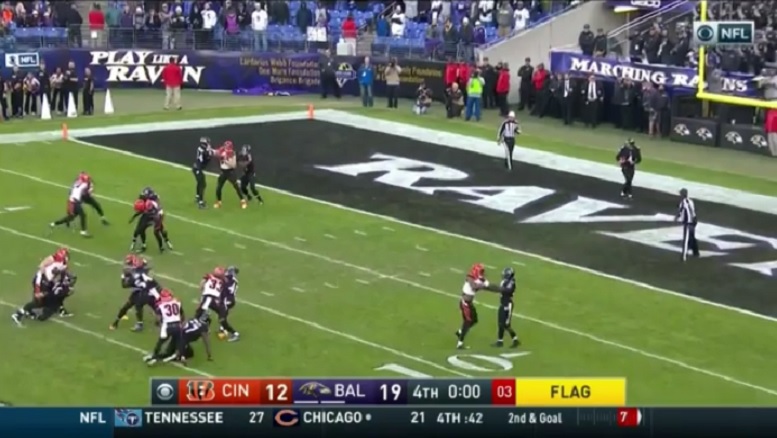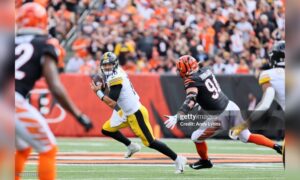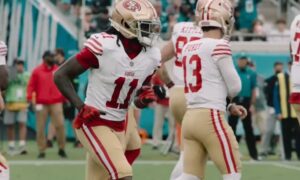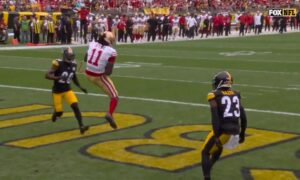It was a genius strategy as well as a very legal one, but with that said, the NFL’s Competition Committee probably needs to take a long look at what happened on the final play of Sunday’s game between the Cincinnati Bengals and the Baltimore Ravens.
With 11 seconds remaining in the game and the Ravens leading the Bengals 19-12, Baltimore faced a punting situation on 4th down from their own 23-yard-line. Ahead of lining up for that play, the Ravens punt team was instructed to aggressively hold all Bengals players who should attempt to rush punter Sam Koch so that it would give him time to run off the remaining 11 seconds before ultimately yielding a safety.
The holds were carried out as ordered and Koch was able to run off the remaining 11 seconds without having to punt the football. Mike Pereira, the NFL’s former Vice President of Officiating and current rules analyst at FOX Sports, quickly took to Twitter to explain why the game wasn’t extended by one play as a result of the multiple holds.
“In Baltimore, foul that occurs in the field of play by offense doesn’t extend the period. If foul was in end zone and created safety, it would”, tweeted Pereira.
Not long after the game ended, Mark Maske of The Washington Post explained on Twitter the league’s view of what happened on that final play.
“NFL says end of Ravens-Bengals game officiated correctly. Not a palpably unfair act to use that tactic on one play. If Ravens had used same intentional holding tactic on a second straight play, it would have been palpably unfair act, NFL says.”
Palpably unfair act is an interesting term for sure. Make no mistake, what the Ravens did certainly was legal and we have seen them do it before. I have no issue with them again exploiting a loophole in the rules.
“We know what we did wrong in the Super Bowl,” Koch told the media after the game. “We kind of learned from it and just made sure that everybody did what they needed to and held on as long as they could and ended up winning the game.”
As of right now, the rules state that a game can’t end on a defensive penalty, but it can end on an offensive penalty. Perhaps that needs to be looked at by the competition committee during the offseason if they didn’t already discuss it after the Ravens did the same exact thing in Super Bowl XLVII against the San Francisco 49ers.
Ravens win by holding Bengals intentionally and delaying safety, there’s no time extension for the flags pic.twitter.com/cL9AdJaIwv
— Vikings Blogger (@firstandskol) November 27, 2016








